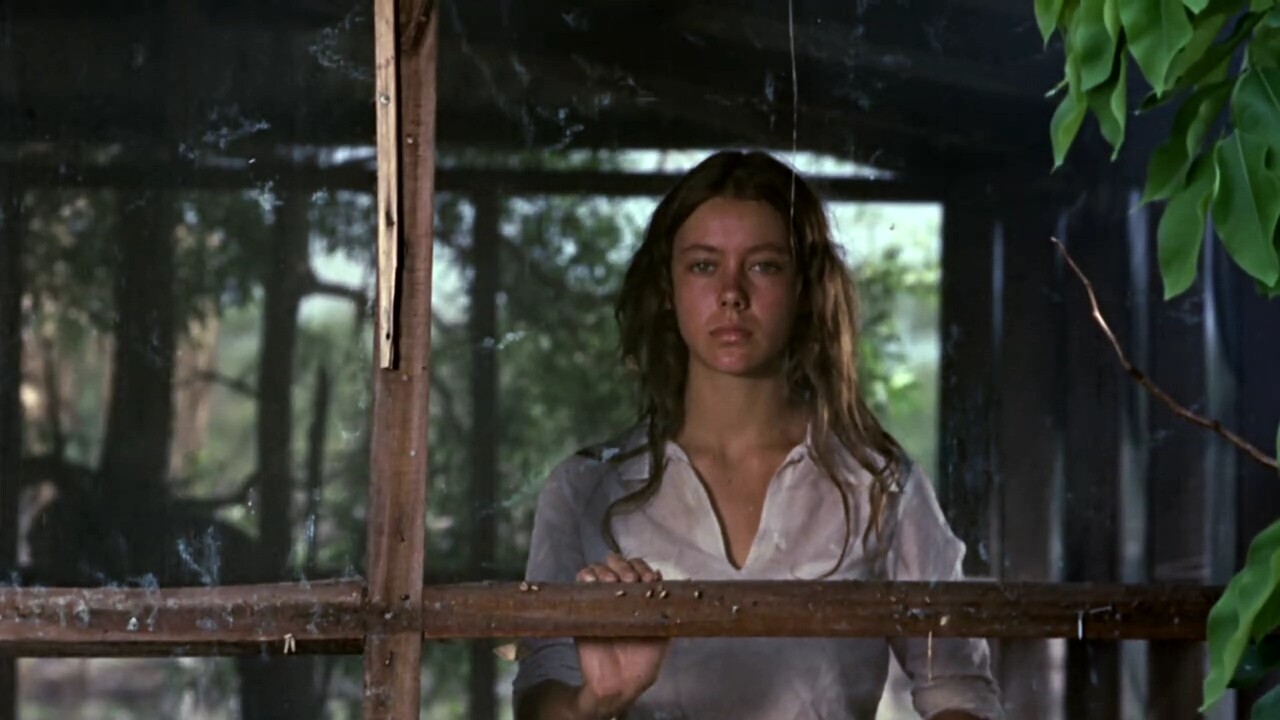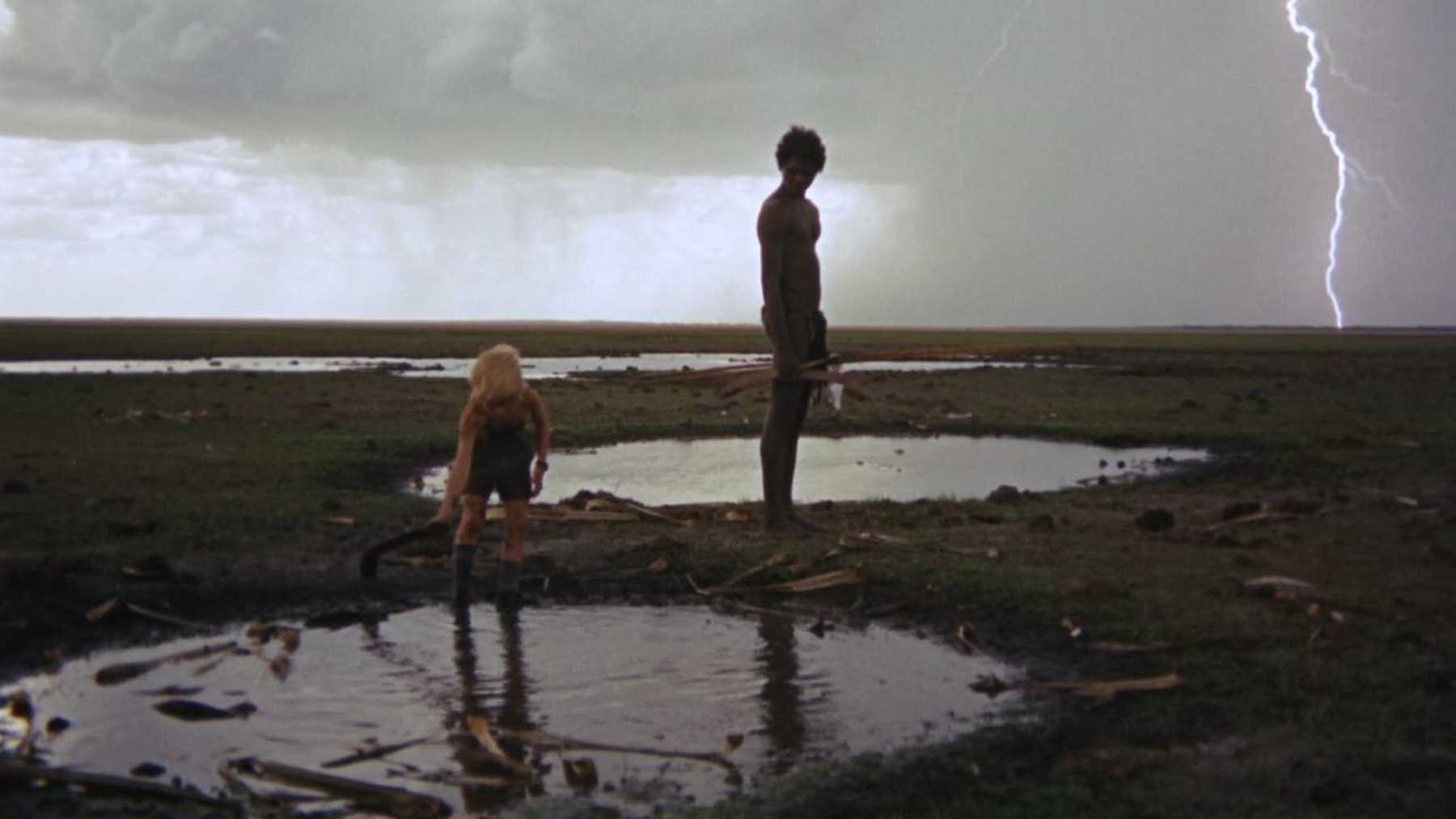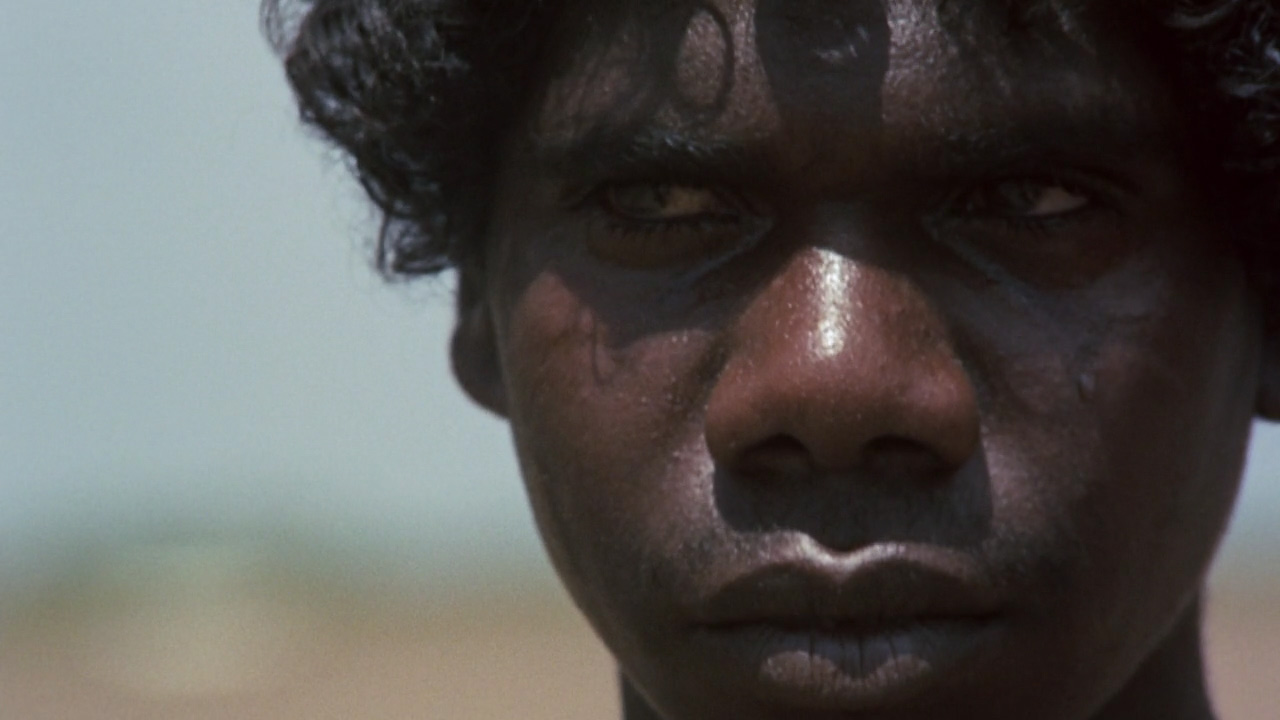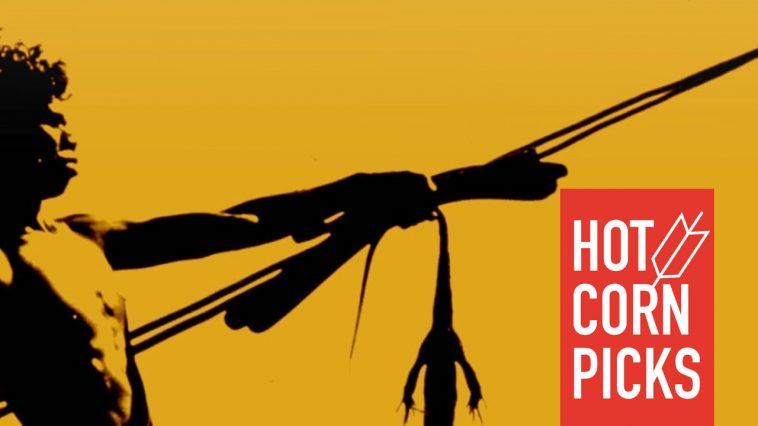The premise of Nicolas Roeg’s Walkabout – now streaming on CHILI – is simplicity itself. Two children find themselves lost in the Australian outback and must survive. They barely do so but a young Aborigine boy happens upon them and helps them back to civilisation. It is a tale of derring-do, of initiative, resourcefulness and survival which harks back to Robinson Crusoe, Coral Island and The Swiss Family Robinson. Even more so in the 1959 novel written by James Vance Marshall on which the film is based. However, Edward Bond slashed through the novel with his screenplay and what remains is a haunting and wonderful critique of civilization wedded to the sexual awakening of a young girl.

Fresh off the success of The Railway Children, Jenny Agutter plays the young girl who along with her younger brother – played by the director’s own son Lucien John – are stranded in the Outback. In a major change to the source material, the children are stranded when their father having failed to murder them, sets fire to the car and blows his brains out. Immediately, the universe is posited as not merely indifferent but actively hostile to children. The girl does her best to shield her brother from the reality but it is soon apparent that they are surrounded by gloriously beautiful danger. With a Lynchian eye for the undergrowth, Roeg’s camera catches nature “red in tooth and claw”, the lizards, snakes and insects. The landscapes that are arid and offer only illusory hope. This is particularly cruel when an oasis they discover dries up overnight.

However, the next day an Aborigine teenager (the legendary David Gulpilil) turns up and takes them under his protection, digging in the mud to find water once more. He hunts and kills to provide them with meat and more importantly knows where he is going. The girl’s original jolly hockey sticks persona has already been scorched into irrelevance by the unremitting sun. Indeed, her brother is more flexible in communicating with their new friend and understanding him. Soon, she is feeling an attraction to the young man and it seems to be mutual.

Throughout the film, Roeg shows civilization in a starkly depressing light. From the war-like toys – an image which will pop up in Don’t Look Now as well – to a bunch of weather scientists who are more intent on ogling their one female colleague than doing any work, the adult world is murderous and absurd. When the young man goes hunting and kills a number of animals, our own disgust is challenged by an intercut of a butcher preparing meat for the supermarket. The point is about as subtle as being brained by a boomerang but just as effective for it.

The Eden the children create skinny dipping in a water hole is tragically brief. As they return towards civilization, the distinctions that had disappeared begin to reassert themselves and the freedoms they enjoyed vanish. Welcome back to the world by one adult telling them brusquely ‘don’t touch anything’, it’s obvious that they will never be able to properly go home again. Technically, the film is perfect. The score by John Barry is mixed with songs from school and radio broadcasts to give a kind of aural palimpsest. Roeg, who began as a cinematographer for the likes of David Lean, also shoots as well as directs the film and produces a savage beauty. Australia, Jenny Agutter and David Gulpilil are all shot gorgeously. That’s the paradox with Roeg. He’s not afraid of ugliness, and he shows it in a way that is often shocking, but his films are also stunningly beautiful and perhaps this is one of the most straightforwardly beautiful films he ever made.
- Watch Walkabout on CHILI here
- HOT CORN PICKS | Bite The Bullet
- HOT CORN PICKS | The Hand






Leave a Comment